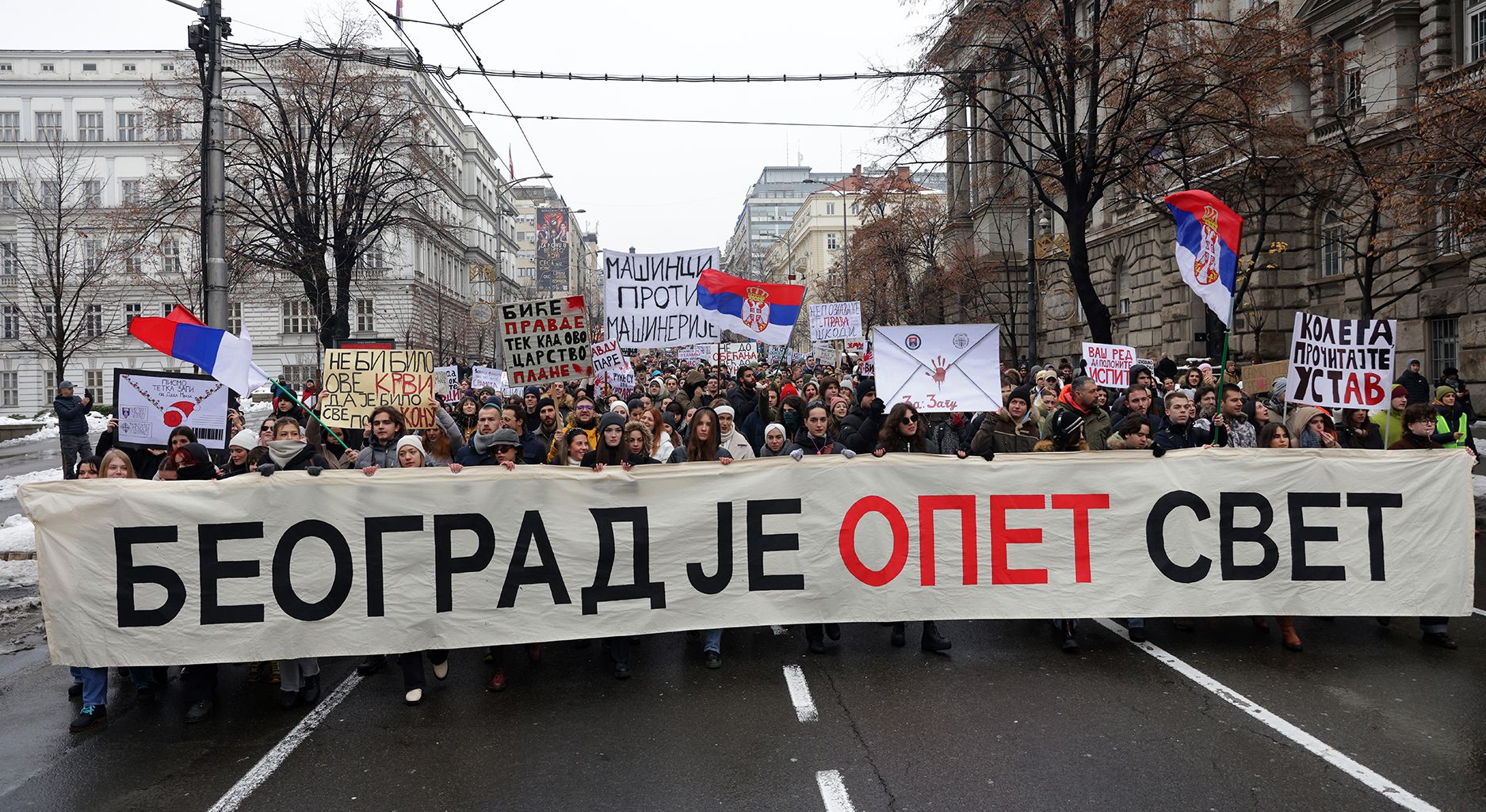
English, PRIF Spotlight21. März 2025 | Mina Trpkovic, Christin Stühlen
Uprisings in Serbia. Struggle(s) against a resilient regime
Following the collapse of the recently renovated Novi Sad train station, which resulted in the death of 15 people, students across Serbia have been leading one of Europe’s largest protest movements. After months of anti-corruption demonstrations demanding justice and government accountability, hundreds of thousands gathered in Belgrade on March 15, 2025, in what some call the largest mass protest in Serbia’s history. While unprecedented in scale, these protests build on previous uprisings since…